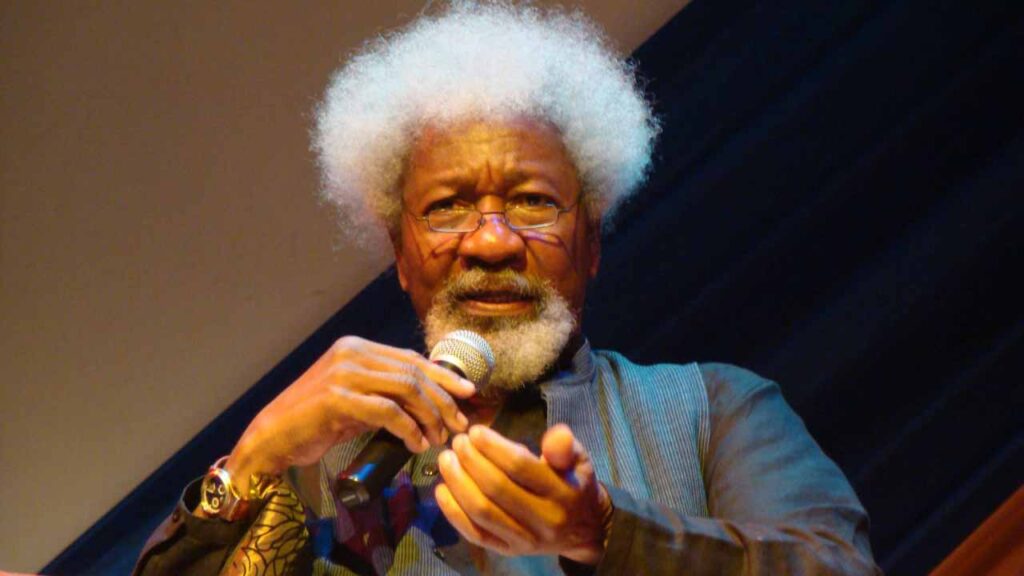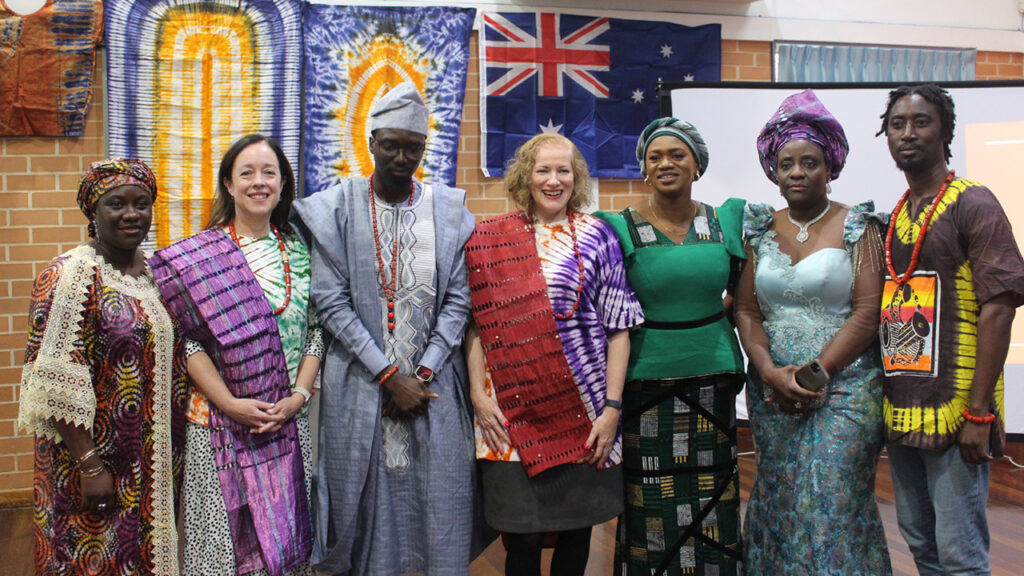
With all the growth that Nollywood has seen, it is easy to think that the industry is at its highest potential – it isn’t. Despite the boom in Nigeria’s movie business, there is gloom in the number of movie theatres available in the country.
Nollywood, a portmanteau of Nigeria and Hollywood, is a sobriquet that originally referred to the Nigerian film industry. The term is traced to an article in The ‘New York Times’ of early 2000s.
What is called Nollywood today is a general name for a larger cinema culture that has subsidiaries: including Yoruba, Hausa, Edo, Igbo and Urhobo.
This month, Royal Root hopes to commission its Cinemall, a mall with a five-screen complex, sitting on two acres in Ikota, Lekki axis. It will be an addition to the number of screens in the country, which is currently put at 251.
The number pales to insignificance compared to the United States, which has over 40,000 screens, China has over 34,000, and Japan with 5,000.
According to a 2021 report by the United Nations Educational, Scientific and Cultural Organisation (UNESCO), the number of cinema screens in Africa is 1,653, which is one screen per 781,402 in population coverage, compared to the United States, which has a total of 44,111 cinemas, translating into 7,503 per screen.
Currently, the main distributors of films in Nigeria are FilmOne Distributions, which owns 45 per cent, Silverbird Film Distribution 20 per cent and Blue Pictures 5 per cent.
The number of admissions into cinema halls in 2019 was 5,432,537. That’s per capita of 0.03, while the gross box office in 2022 was ₦6.94 billion.
The best for Nollywood, however, is yet to come. According to the Chief Executive of Royal Roots, Gregory Odutayo, “there is need for more cinema screens and movie theatres.”
Odutayo said the current figure “is an indication that there is a gap in the distribution process.”
At 251, the number of screens is a far cry of what it was in 1972, when the Indigenisation Decree was issued by the then head of state, General Yakubu Gowon, which led to transfer of ownership of about 300 film theatres in the country from their foreign owners to Nigerians.
Cinema in Nigeria
Film as a medium first arrived in Nigeria in the late 19th century, in the form of peephole viewing of motion picture devices.
The first film hit in this early period came on August 3, 1904, when a documentary on the visit of the Alake of Abeokuta to England was screened.
As of 1921, there were four other halls films twice a week in Lagos Mainland and one hall each in Ebute Metta and Oshodi.
In 1954, mobile cinema vans played to at least 3.5 million people in Nigeria, and films being produced by the Nigerian Film Unit were screened for free at the 44 available cinemas.
Following cinemas becoming a common feature of social life in the then-emerging city of Lagos, the late 1930s through 1940s marked the beginning of the establishment of big commercial cinema houses with branches in strategic parts of the country.
One of the earliest cinema operators in Lagos was the West African Pictures Company owned by Mr. S. Khalil, a member of the Syrian community in Lagos.He established the Rex Cinema in Ebute Metta, Regal Cinema and Royal Cinema. Other popular cinema chains include: Capitol Cinema, Casino Cinema, Kings Cinema, Central Cinema, Rialto Cinema, Corona Cinema, Odeon Cinema, Road House Cinema, Ikeja Arms Cinema and Glover Hall.
Almost three decades ago, cinema culture in Nigeria was practically dead. However, since 2004, it has crawled back, having weathered the storms of the late Shehu Shagari’s Austerity Measure and General Ibrahim Babangida’s Structural Adjustment Programme.
Buoyed by the democratisation of the country’s politics and economy, confidence has seeped back. Growth seems to be returning, albeit, at a slow pace. In 2004, Ben Murray-Bruce, a passionate show promoter, established Silverbird Galleria on Victoria Island, one of Lagos’ upmarket districts.
With five screens, the Galleria pioneered the Cineplex in Nigeria and reversed the nose dive of the big screen culture in the country.
From this initiative, Kene Okwuosa and Moses Babatope co-founded FilmHouse, owners of Film One. They opened a three-screen cinema in the Surulere area of Lagos in 2014.
Odutayo said the Royal Roots Cinemall, a cinema and a mall, is located in the plush suburb of Ikota, in the heart of Lekki. “The anchor tenant is the Cinema, but the Mall features 18 shops ranging from 5sqm to 267sqm with spaces for supermarket, saloon, beauty shops, boutique, bakery, fast food, pharmacy and games arcade.”
A graduate of theatre arts from the University of Ibadan, Odutayo confessed it has been a well-mapped out journey. His long essay in Ibadan was on movie production, even when video format was still in infancy.
He set up Royal Roots after a seven-year post-graduation career in advertising, including time at OBM – Ogilvy Benson & Mather, SO & U and Bates Cosse. Royal Roots formally took off in 1997, as a creative culture communication hub, with TV production outfit, radio stations and collaborative agencies.
When he joined OBM, he applied to be a radio/TV executive and not to be a client service officer. He resisted the attempt to put him in copy section. His mind was very clear about what he wanted to do.
Odutayo retorted, “the creative force for me is a deliberate process that I set up before I left school. At the back of that is excellence. That has been my driving force and our mantra at Royal Roots. It is not enough for you to do creative work, but doing that in an excellent manner.”
Like a caveat, he added: “It’s been a deliberate journey and God guided it.”
Everything happens in The Facility
According to him, return on investment on cinema is like between 17 and 20 per cent. “What we have done is to set up is a one stop shop. Creation, production, distribution, exhibition, media. So, we are creating our content here, distributing it here and to other cinemas, exhibiting it in our own cinemas. Selling it to other places, where we can make money, putting it on TV, supporting it with radio, that’s the whole value chain for us.”
He said, “we have pulled away from producing content because we wanted to build the infrastructural part of the business. For us, we needed infrastructure to support what we are doing.”
Odutayo noted, “after our first programme, Global Cuisine, we ran into challenge. The challenge we ran into was equipment. So, we decided that we needed to acquire equipment, because what happens is that when you hire equipment, you are under pressure. You are in a rush to finish within a specific number of days and then we start rushing.”
The Royal Roots boss revealed, “when you want to do excellent work, you don’t rush.”
CIFI Facility
The days of grants in Nollywood is gone and Odutayo is happy about this. “A lot of people collected grant during Jonathan, but didn’t execute the projects they got grants for. Those who got grant for film production, training facilities and infrastructure development went away with it,” he remarked.
However, the Buhari government’s support to the sector, through the Creative Industry Financing Initiative (CIFI), a loan scheme developed in collaboration with the Central Bank of Nigeria (CBN), to provide access to long-term and low-interest financing for entrepreneurs in the creative industry, was all the Odutayos needed to fulfil their dream.
“We’ve gone through a lot to get to where we are,” he said. “This project started just before COVID-19. We brought in investors and were able to acquire this place. Business school taught me that when you want to expand beyond yourself, you need other people’s money. My wife and I could to just stay in our cocoon in our small production company and we can be fine. But the minute your vision starts to expand, you need other people to come in with money, ideas, direction, energy… for so many things.”
To prepare for this capital-intensive side of show business, the Odutayo enrolled at the Lagos Business School in 2008, “because it wouldn’t work if I’m talking from a trained business person’s perspective and my partner is not,” he said.
“We started in 2018/2019”, he remarked. “It was a lot of paperwork. Creative Industry Financial Initiative was starting and most of us creative people believe in grants. We don’t believe in loans. CBN used us as guinea pigs on the infrastructure side because some things that they did, showed that they hadn’t done this before. We were one of the firsts…”
Royal Roots presented its proposal. “They gave us 15 months moratorium, but unfortunately, as soon as we got the funding, COVID-19 broke out. By the time our moratorium ended, we hadn’t gone very far. In hindsight, we should have gone back to CBN to say look at COVID-19, see what it’s done to us. We’d probably get a fresh moratorium. But we didn’t do that. Inexperience, let me put it that way. We’ve spent a lot more than we got.”
He said with CIFI, you have to provide 30 per cent of whatever they give you. This is a big learning for us. From COVID-19, through EndSARS to the hyperinflation that we have had to face in the country, it’s been crazy. When we started this project, cement was between N1, 800 and N2000. As at when we finished, cement was N5, 000 per bag. Where do you take care of the gap? When we started, exchange rate was 400 plus, but today exchange rate is 700 plus. A lot of our components are imported.
All of those dynamics have affected us. Otherwise, we would have finished this long ago. At some point I had to wear the cap of managing the project because I was the one who knew where the shoe was pinching me. However, we were lucky we took some decisions at the beginning. We hedged some of our risks. A lot of it has been a function of providence. The fitting out of the cinema for instance, we contracted it wholly to FilmHouse. But God has been with us.
“We were to give them the skeleton and they were to come and do fittings, equipment and all of those things. Providence happened to us. When the facility started, CBN gave everything to our bank… We decided we might as well take and use everything. It was a loan you have to pay up. So, we paid FilmHouse between 70 and 80 per cent, we paid them two years before they even needed to bring the equipment for us. Some of the other contractors, get to work. Almost a hundred million, two years ahead of when they were needed.
As at the time we were going to install, it was already about a hundred per cent more. So something we spent a hundred million on, we would have spent two hundred million. Exchange rate when we gave FilmHouse the money was four hundred and something to a dollar. As at the time we needed them, it was seven hundred and something. We had paid them and said go and procure, we had to procure and keep. If we didn’t do all of that, we would have been in too much trouble.”
He added: “We have started repaying. A year and half now. And we have not started business.”
He continued: “We’re going back to production, because production fed the infrastructure. How much has CBN given us? It’s less than 20 per cent of what we have here now. And we’re like 95 per cent complete.”
But the challenge in all these dream to create creative narrative is power. “We have our own transformer. We had to be ingenious. We have a 350kv generator, a 250kv and a 27 kv to run off-peak. It’s crazy when you look at it from that perspective. The market has no elbow room for you as an entrepreneur,” he lamented.
Some of the movies Royal Roots has produced include, ‘Beyond Blood’, the widely applauded romantic drama starring Kehinde Bankole, Joseph Benjamin, Bimbo Manuel and Deyemi Okanlawon, directed by Odutayo himself, released in 2016 and Ìlékè, a Yoruba language full length feature co-produced with Deji Etiwe and Al-basit. Some of RR’s TV Productions include ‘House Apart’, ‘Tides of Fate’, ‘Edge of Paradise’, ‘My Mum & I’, ‘About to Wed’ and ‘Soul Sistas’.











